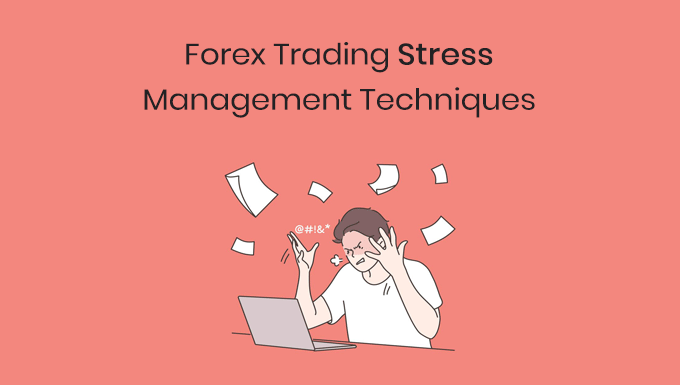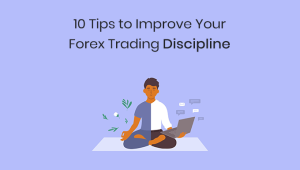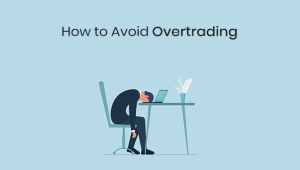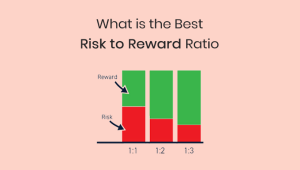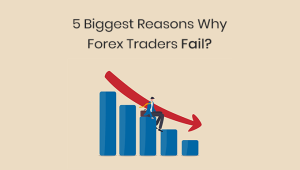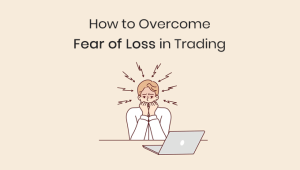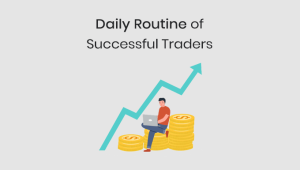Forex trading can be intense, dynamic, and sometimes overwhelming. While the potential for high returns is attractive, the intense pressure and rapid pace can lead to significant stress. As the currency market’s volatility can impact traders both financially and emotionally, mastering forex trading stress management techniques becomes crucial. Managing this stress effectively can not only improve traders’ decision-making capabilities but also enhance their overall well-being. In this article let’s discuss 7 essential techniques to manage stress in Forex trading.
Table of Contents
• Regular Breaks and Mental Refreshers
• Setting Clear Boundaries
• Using Technology and Automation Wisely
• Regularly Reviewing and Adapting Strategies
• Practicing Mindfulness and Meditation
• Ensuring Physical Well-being
• Conclusion
• FAQs
1. Understanding and Accepting Losses
Trading in the Forex market inherently carries risks. It’s impossible to be right 100% of the time, and losses are a natural part of the trading journey.
Why Losses Happen
Every trader, no matter their experience level, will face losses. Various factors, including economic events, geopolitical tensions, and even unexpected natural disasters, can influence currency values.
Accepting Reality
By accepting that losses are inevitable, traders can manage their stress better. This acceptance can prevent them from making impulsive decisions, as they’ll be mentally prepared for such situations.
Learning and Moving On
Every loss provides a learning opportunity. Traders should analyze what went wrong, adjust their strategies accordingly, and use the experience as a stepping stone for future trades.
Setting Realistic Expectations
It’s essential to set realistic expectations. Hoping for continuous wins can lead to disappointment. Instead, aim for consistent growth over time.
Emotional Control
Keeping emotions in check after a loss can prevent rash decisions. It’s crucial to approach the next trade with a clear mind, devoid of the emotional baggage from previous losses.
2. Regular Breaks and Mental Refreshers
Continuous exposure to charts, numbers, and market news can be mentally draining. Taking regular breaks is essential to keep the mind sharp and stress levels down.
Importance of Taking a Break
Engaging in constant trading without a break can lead to decision fatigue. Traders might overlook crucial signals or make impulsive decisions out of sheer exhaustion.
Ways to Refresh Your Mind
Simple activities like taking a walk, practicing deep breathing, or even indulging in a short nap can rejuvenate the mind. Some traders also find solace in meditation or light physical exercise.
Schedule Breaks
To ensure consistency, it’s a good idea to schedule breaks. For instance, after every two hours of continuous trading, take a 15-minute break.
The Concept of a Trading Sabbath
Some seasoned traders follow a ‘Trading Sabbath’ — a complete day off from trading. Especially if it’s a high-impact news day, then it’s better to take a day off from trading to avoid the stress that high market volatility can create. This break allows them to disconnect, relax, and come back with a fresh perspective.
3. Setting Clear Boundaries
In Forex trading, discipline is vital. By setting clear boundaries, traders can avoid overexerting themselves and reduce the potential for stress.
The Importance of Boundaries
Boundaries prevent traders from overtrading, which can lead to both mental fatigue and financial strain.
Time Management
Allocating specific times for trading and sticking to them can create a healthy work-life balance. Taking breaks is essential to recharge and return with a refreshed perspective.
Financial Limits
Setting a daily or weekly loss limit can prevent traders from chasing losses. Once this boundary is reached, it’s a sign to step back and evaluate. Use stop-loss for every trade as it can minimize losses.
Avoiding Burnout
Constant exposure to the market can be exhausting. By setting boundaries, traders protect themselves from burnout, ensuring they can approach each trade with a clear mind.
Respecting Personal Limits
Every trader has a different threshold for stress. Recognizing personal limits and respecting them can lead to better decision-making and overall well-being.
4. Using Technology and Automation Wisely
The right tools and technology can make trading more efficient, reducing manual effort and the associated stress.
Why Technology Matters
With the rise of algorithmic trading and sophisticated software, traders can now automate certain tasks. This automation reduces the chances of human error and frees up time.
Choosing the Right Tools
It’s crucial to pick trading platforms and tools that align with one’s trading style. User-friendly interfaces, real-time data, and reliable customer support are some features to consider.
The Risk of Over-Automation
While automation is beneficial, over-relying on it can be detrimental. Traders should regularly review automated trades to ensure they align with their overall strategy.
Balancing Human Insight with Tech
Using technology wisely means striking a balance. While algorithms can process data rapidly, human intuition and market insight are irreplaceable. The blend of both can lead to optimal results.
5. Regularly Reviewing and Adapting Strategies
The Forex market is ever-changing. To manage stress, traders should ensure their strategies remain relevant and effective. Adjusting your trading strategy with prior experience will minimize potential losses.
The Dynamic Nature of Forex
Currency values can be influenced by myriad factors. As these factors change, strategies that once worked might become less effective.
The Power of Reflection
By regularly reviewing their trades, traders can identify patterns, both in the market and in their own behaviors. This introspection can lead to more informed decisions in the future.
Adapting to Change
Change is inevitable. Traders who adapt their strategies in response to market shifts are more likely to succeed and less likely to feel overwhelmed.
Seeking Feedback
Discussing strategies with peers or mentors can offer fresh perspectives. External feedback can help identify blind spots in a trader’s approach.
Continuous Learning
The Forex landscape evolves continuously. Committing to lifelong learning can help traders stay ahead of the curve and reduce the stress of feeling unprepared.
6. Practicing Mindfulness and Meditation
Trading in the Forex market can be intense, making it imperative for traders to maintain a calm and focused mind. Mindfulness and meditation have emerged as powerful tools to help traders navigate the stormy seas of the financial world.
The Role of Mindfulness in Trading
Mindfulness involves being present and fully engaged with the current moment, without judgment. For traders, this can mean fully concentrating on analysis, being aware of emotional triggers, and avoiding impulsive decisions.
Techniques for Practicing Mindfulness
Simple exercises like focused breathing, regular pauses, and being aware of one’s physical sensations can cultivate mindfulness. These practices can help traders recognize their emotions and make more rational decisions.
Benefits of Meditation for Traders
Meditation reduces stress, enhances concentration, and improves emotional health. For traders, daily meditation sessions can serve as a reset button, helping them approach trading with clarity.
Staying Grounded During Turbulence
When the market is volatile, maintaining equanimity is crucial. Mindfulness practices can help traders remain grounded, avoiding the pitfalls of panic-driven decisions.
Cultivating a Calm Mindset
By consistently practicing mindfulness and meditation, traders can nurture a calm mindset, enabling them to handle the highs and lows of trading more effectively.
7. Ensuring Physical Well-being
Physical health is intrinsically linked to mental well-being. Traders who prioritize their physical health often find themselves better equipped to handle the mental demands of Forex trading.
The Connection Between Physical and Mental Health
A fit body supports a fit mind. Regular physical activity has been shown to reduce stress levels, improve mood, and boost cognitive functions.
Benefits of Regular Exercise
Exercise releases endorphins, natural stress-relievers. Whether it’s a brisk walk, a session at the gym, or yoga, regular exercise can help traders manage the pressures of the trading world.
Maintaining a Balanced Diet
A balanced diet fuels both the body and the mind. Nutrient-rich foods enhance cognitive functions, ensuring that traders remain alert and focused during their sessions.
Importance of Adequate Sleep
Sleep is the body’s natural way of recuperating. A well-rested trader is more likely to make informed decisions, avoid impulsive choices, and handle stress better.
Avoiding Excessive Caffeine and Alcohol
While they might offer temporary relief, excessive caffeine and alcohol can exacerbate stress. Moderation is key to ensuring they don’t hinder a trader’s performance.
Conclusion
Forex trading is as much a test of mental strength as it is of market knowledge. By integrating the highlighted 7 forex trading stress management techniques, traders not only enhance their decision-making capabilities but also foster a healthier and more sustainable trading journey. Whether it’s through setting clear boundaries, physical well-being, or acceptance of losses, managing stress effectively is the key to long-term trading success.
FAQs
1. How does maintaining a trading journal help in managing stress?
Maintaining a trading journal allows traders to track and analyze their trades, helping them identify patterns, both positive and negative. Reviewing this journal can help traders understand their decision-making process, avoid repeating mistakes, and validate successful strategies. This proactive approach reduces uncertainty and, consequently, stress.
2. Can physical exercise play a role in managing trading stress?
Absolutely! Physical exercise releases endorphins, which are natural stress-relievers. Regular physical activity can also improve sleep, enhance focus, and elevate mood—all crucial for a trader’s mental well-being and decision-making prowess.
3. Do all traders experience stress in the same way?
No, stress is a subjective experience. Factors such as personality, trading experience, personal circumstances, and even physiological factors can influence how an individual experiences and manages stress. What overwhelms one trader might be easily manageable for another.
4. How do global events impact a trader’s stress levels?
Global events, like geopolitical shifts or significant economic announcements, can introduce volatility into the Forex market. This unpredictability can be a source of stress, especially if a trader is unprepared or lacks the necessary information to navigate these changes.
5. Is it advisable to take extended breaks or sabbaticals from trading?
Yes, for some traders, taking extended breaks can be beneficial. Sabbaticals allow traders to detach, recuperate, and return with a fresh perspective. This break can reduce burnout and ensure that traders approach the market with renewed energy and clarity.
